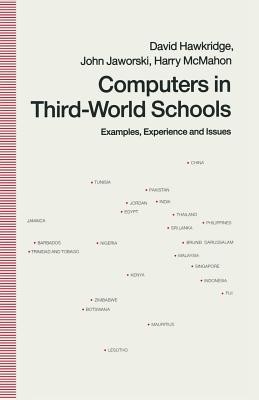
- We will send in 10–14 business days.
- Author: David Hawkridge
- Publisher: Palgrave Macmillan
- ISBN-10: 033352750X
- ISBN-13: 9780333527504
- Format: 14 x 21.6 x 2.1 cm, minkšti viršeliai
- Language: English
- SAVE -10% with code: EXTRA
Reviews
Description
The reasons why governments of developing countries should put computer technology in their schools are highly controversial, but no less than the actual use being made of these comparatively expensive machines and their software. This book looks at experience in African, Asian and Arabic-speaking countries that already have computers in some of their schools. It is based mainly on research in China, Jordan, Kenya, Mauritius, Sri Lanka and Tunisia. The authors debate policy and practice in the light of experience to date. They identify the rationales commonly deployed by Ministries of Education and international agencies, but argue themselves for a long-term view of the potential of computers to liberalise education, and through such education to reduce dependency and inequity.
EXTRA 10 % discount with code: EXTRA
The promotion ends in 21d.12:45:45
The discount code is valid when purchasing from 10 €. Discounts do not stack.
- Author: David Hawkridge
- Publisher: Palgrave Macmillan
- ISBN-10: 033352750X
- ISBN-13: 9780333527504
- Format: 14 x 21.6 x 2.1 cm, minkšti viršeliai
- Language: English English
The reasons why governments of developing countries should put computer technology in their schools are highly controversial, but no less than the actual use being made of these comparatively expensive machines and their software. This book looks at experience in African, Asian and Arabic-speaking countries that already have computers in some of their schools. It is based mainly on research in China, Jordan, Kenya, Mauritius, Sri Lanka and Tunisia. The authors debate policy and practice in the light of experience to date. They identify the rationales commonly deployed by Ministries of Education and international agencies, but argue themselves for a long-term view of the potential of computers to liberalise education, and through such education to reduce dependency and inequity.


Reviews